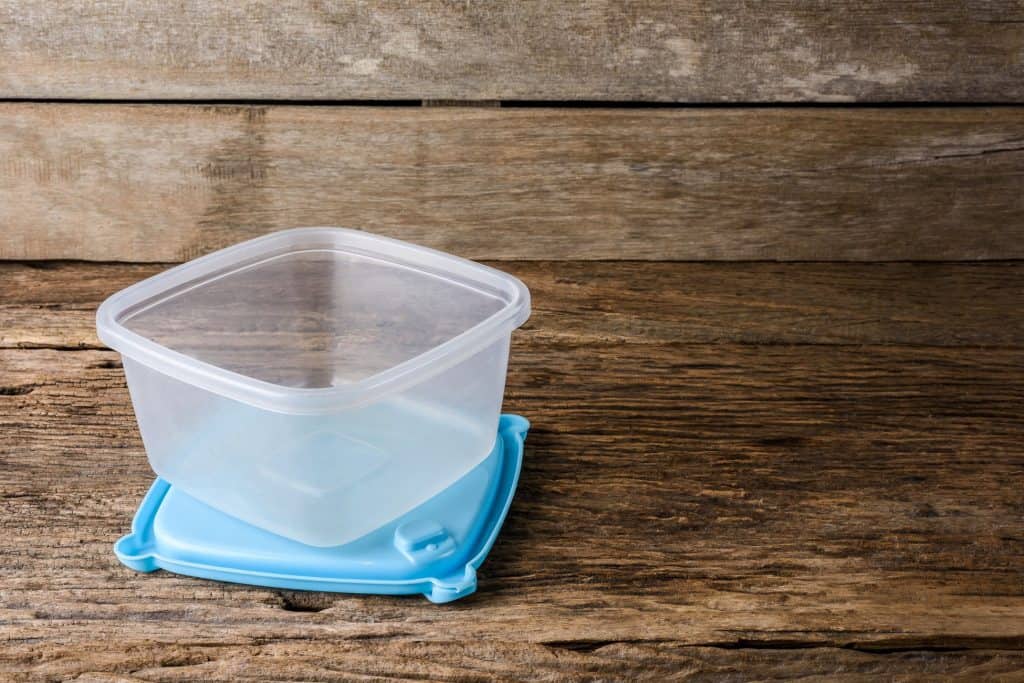While pregnancy and fermented foods usually don’t mix (i.e. Kimchi), some exceptions exist – sourdough being one of them. Can you eat sourdough bread while pregnant? Yes!
Can you enjoy sourdough for the entirety of your pregnancy? It depends, sadly. It may even reach a point where you’d be completely barred from gluten, and failure to comply could compromise not only your pregnancy but even your long-term health.
Sourdough bread is made through a fermentation process that involves yeast and bacteria, which breaks down gluten, making the bread easier to digest and improving your gut health. On paper, it should be perfectly fine for pregnant women to eat.
Unfortunately, there is a condition (celiac disease) that leaves you allergic to gluten, provoking autoimmune responses that attack your lower intestine. This disease has a random chance of being triggered late in your life, and pregnancy may play a part in this.
It’s crucial that you store your sourdough bread properly to avoid moisture, bacteria, and mold contamination. Sourdough bread should be tossed at the first sign of spoilage, but stale sourdough is still edible – though you might make better use of it as an ingredient instead!
While pregnant women can usually eat sourdough bread, that could change at the drop of the hat – don’t stake your baby’s health on a mere assumption. We’ll go over the details down below.
Can I Eat Sourdough Bread while Pregnant?
Sourdough Bread

Sourdough bread is a healthy food that offers welcome nutrients like B vitamins, zinc, magnesium, and iron. It also has a lower glycemic index compared to other types of bread, helping you keep your blood sugar at manageable levels.
Additionally, it’s also easier to digest as the gluten (and other complex carbohydrates present) has been broken down thanks to the fermentation process.
Sourdough bread is quite manageable to make, requiring simple ingredients and a starter – you could even bake your own at home at minimal risk and cost. You can eat sourdough bread while pregnant, and it’ll be a lot better for you than most other commercial bread available.
Sourdough does have sizeable sodium content though, so be mindful of your intake even if it’s technically a healthier option for you.
Do note that the starter bacteria being used varies, and some individuals may be allergic to the specific strain in use – this is something to be mindful of if you already had less-than-stellar interactions with fermented foods before your pregnancy.
Celiac Disease
Celiac disease is an awful condition that leaves you allergic to gluten and wheat-based products. Exposure to these will damage your lower intestine, compromising your gut health and making it difficult to absorb nutrients. In severe cases, it even leaves you vulnerable to picking up other autoimmune diseases, which will shift your health situation firmly into the danger zone.
If you have celiac disease, there’s no way around it short of avoiding gluten products entirely – this is doubly important while pregnant. Celiac disease can emerge at any point, so be mindful of some early symptoms like diarrhea and sudden weight loss (despite no other dietary change).
While you can eat sourdough bread while pregnant, that may not stay the case throughout its entirety – be mindful of the slim, but real possibility of celiac disease randomly cropping up.
Storing Sourdough Bread

For immediate consumption, sourdough bread is best stored at room temperature inside an airtight container. Your bread should last at least two days before going stale. Avoid storing sourdough bread in soft bags at room temperature, as it may end up soggy or crushed.
You could opt to store your sourdough in the fridge. This extends the shelf life to about a week, but the tradeoff is that your bread ends up going stale a bit faster.
Alternatively, you could put your sourdough in the freezer – it can last for up to six months, but the quality will degrade after the first eight weeks in storage. This isn’t very practical for easy eating, so we’d only recommend doing this if you’ve baked a ton of sourdough bread!
We’d strongly recommend that you slice your sourdough beforehand, regardless of your storage method of choice – it just makes the bread more practical to eat. This is especially important for freezer storage, as you won’t have to wait for the loaf to defrost before you can start cutting.
Sign of Spoiled Sourdough Bread

It’s perfectly safe to eat sourdough bread while pregnant (provided you don’t have celiac disease). You do need to pay attention to signs of spoilage though, as spoiled sourdough bread can pass on disastrous bacteria and mold when ingested (most notably Salmonella and Listeria).
If your sourdough bread has visible mold, it’s well past its expiration date. Don’t bother cutting off moldy pieces – it won’t make much of a difference, especially for pregnant women.
A sour smell is fine for sourdough bread – it’s to be expected, given the fermentation process. It shouldn’t, however, smell like rot or alcohol. Discard your sourdough on the first sign of this. Don’t even try to give it a taste test, as even brief exposure may leave you with food poisoning.
Stale Sourdough
Stale sourdough is perfectly edible, though it won’t be near as appealing as fresh sourdough. It’ll be dry, hard to chew, and less flavorful – but it won’t pose health risks when eaten.
You can even eat stale sourdough while pregnant, though it would be wiser to repurpose it for another dish (i.e. bread pudding, salad croutons, breadcrumbs, soup toppers, etc.).
Final Thoughts
You’re more than welcome to eat sourdough while pregnant, but remember that this could change abruptly due to circumstances out of your control. If there’s even a slim chance you have celiac disease, don’t hesitate to drop sourdough (and other gluten products) off your pregnancy menu.
Try to gauge how long your sourdough bread will last, and choose your storage method accordingly (always pre-slice!). If you suspect that your sourdough bread is spoiled, don’t give it a taste test – it’s better to be safe than sorry, especially with your pregnancy to consider!
